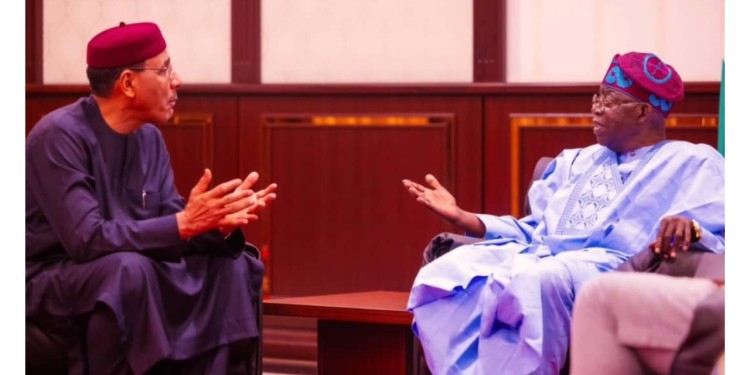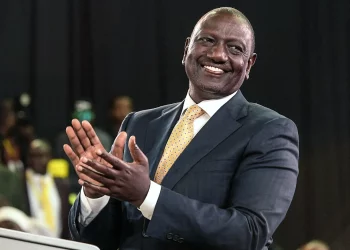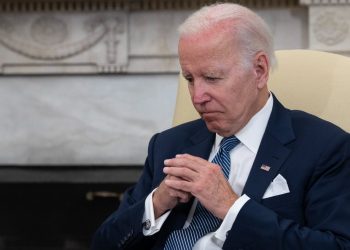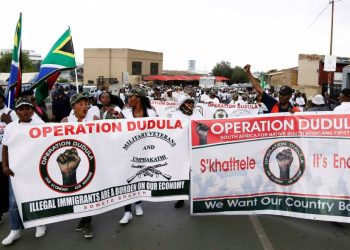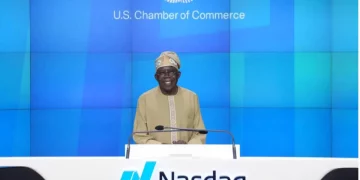The potential military option in Niger for ECOWAS under the leadership of Nigeria is currently in troubled waters considering the position the country’s National Assembly has taken. Since the threat was made, it has remained in the news, and it has remained so for good reasons.
The military option, while a response to address a coup plot and restore democratic governance, it is fraught with significant challenges that must be carefully considered before such a step is undertaken. This reality is not lost to the lawmakers at Nigeria’s National Assembly.
These challenges highlight the complexities and potential risks involved in using military force as a means to achieve political objectives. Each risk must be well considered before a decision is made for military option. Even when the decision is made, the eventual approach to affecting the decision will also require caution.
The issue of sovereignty is one of such challenges.
Niger is a sovereign country, which it’s territory cannot be violated under international law by another country. The principle of national sovereignty is a cornerstone of international relations.
Any military intervention in Niger without the consent of its government could be perceived as a violation of its sovereignty and could lead to diplomatic tensions, regional backlash, and the potential for a broader conflict.
However, this is not as easy as it looks. National consent for the intervention of foreign military into Niger must be obtained and this can only come from a legitimate government in the country. The question could then be asked, what fits into this description of “national consent” or legitimate government” in Niger.
The coup plotters have since declared themselves in charge of governance in the country, but do they possess legitimacy?
The head of the presidential guard, Abdourahamane Tiani, had one major responsibility – the protection of the president. In July he did the exact opposite by deposing the president. He was immediately named as the new leader of the country.
The whereabouts of President Bazoum is unclear, but information in the public indicates he is held under house arrest in the presidential palace in Niger. In an op-ed for he wrote on The Washington Post he described himself as a “hostage” in the hands of the coup plotters.
President Bazoum was democratically elected in 2021, which ended many years of military regime in the country, since its political independence from France. He has remained in power since the transition in 2021 as Niger’s legitimate leader.
Military takeover of power is unconstitutional in Niger. It is not a lawful way of change of the baton of power from one political leader to another. This is irrespective of the crowd of support, that has protested in support of the military junta in the country’s capital.
This crowd has been described by critics as “a few rented crowd”. There have also been anti-protesters on the street of the capital denouncing the military takeover of power in the country. Neither the pro nor anti-protesters define legitimacy of the current holders of power in Niger.
The only thing that defines legitimacy under the Nigerien constitution is the process of emergence of the leader. The only one that is reorganised under the constitution between coup and election is the later. That process produced President Bazoun only.
In The Washington Post op-ed, President Bazoum seems to support the idea of military intervention by foreign powers. He went ahead to directly call for it, by inviting the United States to do so. France have already openly declared support for the ECOWAS consideration of military response.
Other Challenges and Considerations
Complex Political Dynamics in Niger: The political landscape in Niger is complex, with multiple factions, ethnic groups, and interests. A military intervention could inadvertently exacerbate existing divisions, leading to further instability, resistance, and potentially even prolonged violence.
Military actions have the inherent risk of escalation, where a localized conflict can spiral into a larger regional or international confrontation. An ECOWAS military intervention in Niger could inadvertently draw other actors, including non-state armed groups, neighboring countries, or external powers, into the conflict.
Impact on Civilians: Military operations, even if well-intentioned, often result in collateral damages, displacement of civilians, and human rights abuses. This is without doubt, but there are those who will contend that it cannot be a reason to let the coup succeed and the plotters reap the benefit. This can only lead to a harvest of more military takeovers in the region and many other negative consequences for failure to act decisively.
Therefore, as desirable as it looks to oust the Niger military junta, it is also imperative for caution to be applied. ECOWAS must carefully consider the potential impact on the civilian population and ensure that the military intervention minimizes harm to innocent lives.
Clarity of Objective and Mission: Any military intervention could have the potential for abuse, especially by the invading forces. There is always the room for abuse if the parameters of intervention are not defined from the beginning. This could lead to unnecessary escalation.
Therefore, clearly defining the scope and objectives of a military intervention is crucial. ECOWAS would need to establish a clear mandate for its forces, detailing the goals of the intervention, the desired end-state, and the criteria for success.
Operational Logistics: The likelihood of logistical and operational challenges in Niger is real for foreign forces. Niger is landlocked and can only be accessed by foreign forces from neighbouring countries. This should ordinarily be an advantage considering the fact that the ECOWAS troops are approaching from these neigbouring countries.
However, it should also be noted that Mali and Burkina Faso are two of these neighbouring countries. They have both vowed to side with the military junta if attacked by ECOWAS.
Deploying a military force to Niger poses significant logistical challenges, including transportation, supply lines, communication infrastructure, and troop coordination. Operating in a landlocked country with varying terrain and infrastructure could complicate the execution of the mission.
Exit Strategy: Establishing a clear exit strategy is essential to prevent a protracted military presence. Without a well-defined plan for withdrawal and transition to sustainable governance, the intervention could inadvertently lead to dependency on external forces and undermine long-term stability.
International Support and Legitimacy: The success and legitimacy of a military intervention would depend on broad international support and endorsement. Lack of consensus within ECOWAS or opposition from key global actors could weaken the credibility and effectiveness of the intervention.
France has already thrown support for this military option, but that is not enough. The part Russia would play is not in doubt. There is the need for broader global coalition at least for moral support, in case things go awry and escalates further.
Unintended Consequences: Military actions often have unintended consequences that can reverberate long after the intervention. These could include increased radicalization, spread of violence to neighboring countries, or the creation of power vacuums that enable further instability.
For this purpose, ECOWAS no doubt not only needs clear exit strategy, but also mitigation strategy for these unintended consequences.
Resource Allocation: A military intervention demands significant financial, logistical, and human resources. ECOWAS member states would need to carefully allocate these resources while considering other pressing regional priorities such as development, healthcare, and poverty alleviation.
So, What should ECOWAS do then?
This is simple. While a military option to address the Niger coup plot may be considered by ECOWAS as a means to restore democratic governance and uphold regional stability, the challenges associated with such an approach are substantial.
ECOWAS must weigh these challenges against its objectives and carefully consider alternative diplomatic and non-military measures to achieve its goals while minimizing the potential risks and negative consequences of military intervention.
If a military response becomes the only option, then it would require broad regional support and a clear mandate from ECOWAS member states. A lack of consensus could undermine the legitimacy of the intervention.


